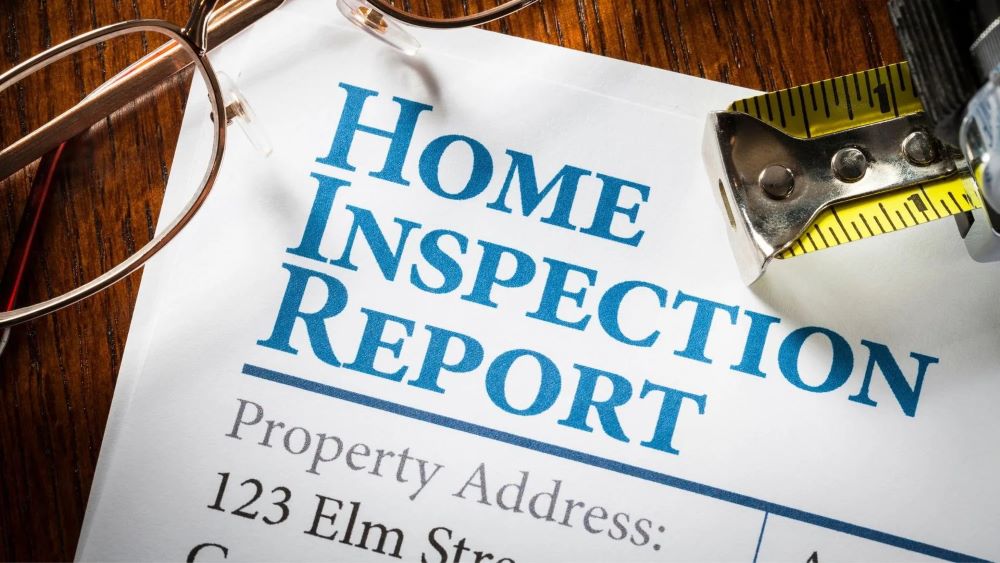The Step-by-Step Guide to Conducting Effective Property Inspection
When it comes to property ownership, regular inspections play a crucial role in ensuring the safety, functionality, and overall condition of a property. Whether you own a residential home, a rental property, or a commercial building, conducting regular property inspections should be an integral part of your maintenance routine. In this article, we will explore the various benefits of regular property inspections and discuss how they contribute to the long-term well-being of your investment.
Benefits of Regular Property Inspections
1. Ensuring Safety and Security
One of the primary reasons to conduct regular property inspections is to ensure the safety and security of the occupants. Inspections allow you to identify potential hazards such as faulty wiring, structural weaknesses, or fire risks. By detecting these issues early on, you can take immediate action to rectify them and protect the well-being of everyone on the premises. Additionally, inspections can help uncover security vulnerabilities, such as broken locks or inadequate lighting, allowing you to implement necessary security measures.
2. Identifying Maintenance Issues
Regular property inspections are essential for identifying and addressing maintenance issues before they escalate into major problems. By conducting thorough inspections, you can spot signs of wear and tear, leaks, or plumbing issues that may not be immediately apparent. Timely identification of these maintenance issues enables you to take proactive steps to rectify them, saving you from costly repairs and further damage down the line.
3. Preventing Costly Repairs
By investing time and effort in regular property inspections, you can catch small issues before they become significant and expensive problems. For example, identifying a minor roof leak during an inspection allows you to address it promptly, preventing water damage and the need for extensive repairs later on. Regular inspections provide an opportunity to catch and resolve issues early, potentially saving you a significant amount of money in the long run.
4. Maintaining Property Value
A property's value is directly tied to its condition and functionality.
Regular property inspections help you maintain the value of your property by ensuring that it remains in excellent condition.
By promptly addressing maintenance issues, you can preserve the property's aesthetics, functionality, and overall appeal.
This is especially important for rental properties, as well-maintained properties are more likely to attract quality tenants and command higher rental rates.
5. Complying with Legal and Insurance Requirements
Property inspections also play a crucial role in complying with legal and insurance requirements.
Many jurisdictions have regulations in place that mandate periodic inspections to ensure compliance with safety and building codes. By conducting regular inspections, you can stay on top of these requirements and avoid penalties or legal complications.
Additionally, insurance companies often require property inspections to assess risk levels and determine coverage. Failing to comply with insurance requirements may result in denied claims or inadequate coverage.
How to Conduct Regular Property Inspections
1. Establishing a Schedule
To ensure consistency and effectiveness, it is crucial to establish a regular inspection schedule. The frequency of inspections may vary depending on factors such as the property type, age, and location. Some properties may require inspections on a monthly or quarterly basis, while others may only need annual inspections. Consider the specific needs of your property and create a schedule that allows for comprehensive inspections at appropriate intervals.
2. Documenting Findings
During property inspections, it is important to document your findings systematically.
Take detailed notes, capture photographs, and record any abnormalities or issues discovered.
Maintaining a comprehensive inspection log allows you to track the condition of your property over time and provides
a reference point for future inspections. This documentation can also serve as valuable evidence in case of disputes with tenants, insurance claims, or legal matters.
3. Addressing Issues Promptly
When conducting property inspections, it is crucial to address any identified issues promptly.
Whether it's a minor maintenance task or a significant repair, taking immediate action can prevent further damage and mitigate potential risks. Create a plan to prioritize and address the identified issues promptly.
This proactive approach ensures that your property remains in optimal condition and minimizes the chances of more significant problems arising.
4. Engaging Professionals, if needed
While property owners can conduct inspections themselves, engaging professionals, such as licensed inspectors or specialized contractors, can provide an added layer of expertise. Professionals possess the knowledge and experience to identify potential issues that may go unnoticed by an untrained eye. They can offer valuable insights, conduct more detailed assessments, and provide recommendations for necessary repairs or maintenance tasks. Utilizing the services of professionals can help you maintain the highest standards of property condition and ensure comprehensive inspections.
Regular property inspections are of paramount importance for property owners and investors.
They serve as a proactive approach to identifying and addressing safety concerns, maintenance issues, and potential risks.
By conducting inspections regularly, property owners can ensure the well-being of occupants, prevent costly repairs, maintain property value, and comply with legal and insurance requirements. Establishing a schedule, documenting findings, addressing issues promptly, and engaging professionals when necessary are all key components of an effective property inspection routine. By prioritizing regular inspections, property owners can protect their investments and enjoy peace of mind knowing that their properties are in excellent condition.


